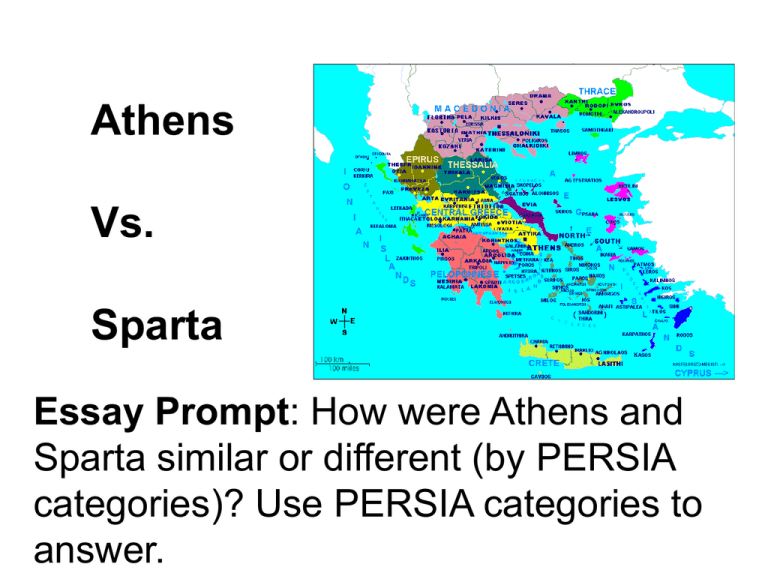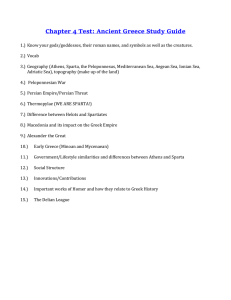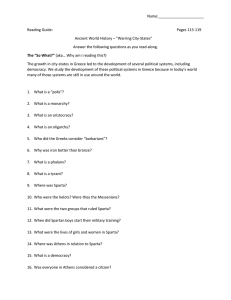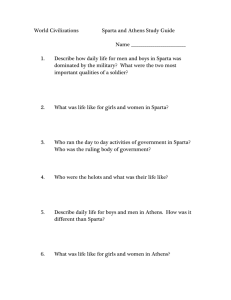Athens Vs. Sparta Essay Prompt
advertisement

Athens Vs. Sparta Essay Prompt: How were Athens and Sparta similar or different (by PERSIA categories)? Use PERSIA categories to answer. Government Athens: • • Democracy Citizens were free men over 18 Had to be Born to Athenian parents (after 451 BCE) Council of 500 met every day Suggested new laws Assembly of 6000 met to debate Issues, vote on laws • Citizens are proud to serve and proud of freedoms • Voting age is 30 Military: Strong navy Sparta: •Oligarchy- Ruling power in hands of few wealthy people Council of Elders made decisions – Comprised of 2 kings and 28 men – had to be 60 years old Council had power- prepared laws Assembly met but had no power. Military: Strong army Economy Athens: Sparta: • • •Farm economy – also relied on conquering other people Based on trade Not enough farmable land to produce food • Geography promoted trade with other city states – Athenians liked to travel. • Slaves worked in mines, fields and in households • Agora – marketplace where goods were bought and sold (including Slaves) • Coin system was developed. •Geography was inland - trade discouraged-Spartans were Suspicious of outsiders •Not enough land so they took from their neighbors •Helots (slaves) were conquered people from other villages that produced for Sparta. •Used Iron Rods for Money Education-Intellectual Athens: • Promoted education for boys • Beginning around age 6-7, boys went to school. At age 18, military training began. Girls: Most did not learn to read or write. Helped mothers around The house and were married by age 15. Sparta: All children learned to fight from around age 7, including girls. •Barracks were buildings where boys lived and trained. •Taught to read and write but not so Important. •Boys were taught to suffer through physical pain –marched all day and weren’t fed well. •At 20 – boys were given a fitness test which determined whether they would become soldiers. •Men couldn’t live at home with family until age 30. Society Athens: Sparta: Women Women • • • • •Had rights. Spartan women could own property, remarry if their husbands were gone too long at war No rights, no jobs Couldn’t own property Couldn’t choose husbands Managed households Slaves •Most households had at least one slave •Some born into slavery, others captured in wars •Worked in households and tutored children •Also worked in mines and farm •fields Slaves – called Helots, had some rights •Could marry whomever they wanted •Could buy their freedom •There were more helots than citizens. •Treated harshly to prevent a revolt •Government sometimes declared war on helots •Slaves were captured people from Conquered villages and cities



